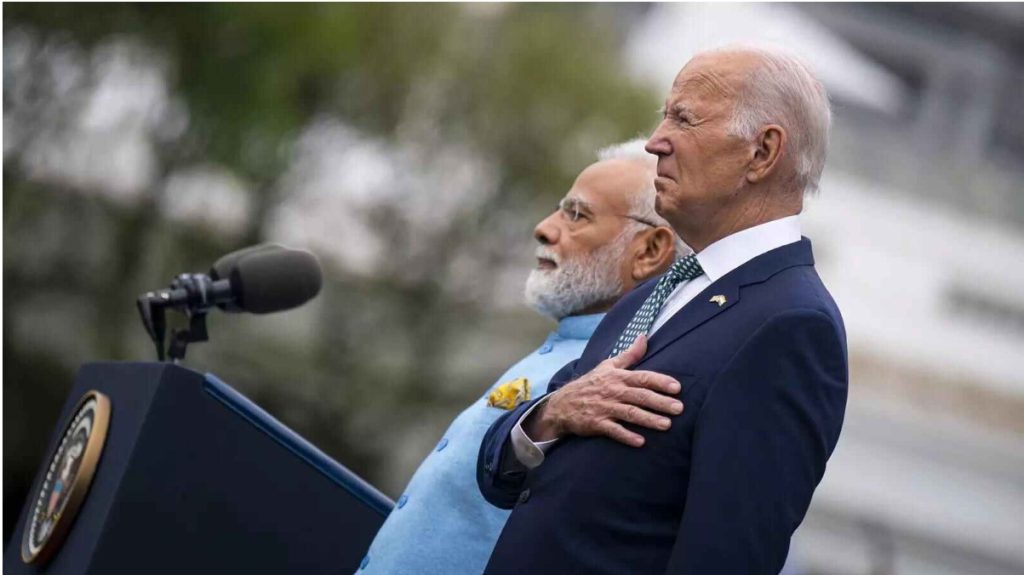And yet the most cursory examination shows that this is far-fetched. If India was an ally of the US, it would have condemned the Russian invasion of Ukraine. But it refused to do so despite US pressure and dismay. If India was a US ally, it would have helped the US weaken Russia through sanctions. Instead, it has bought Russian oil in record quantities.
Looking ahead, US intelligence says China is planning to invade Taiwan by 2027. The US has pledged to defend Taiwan. Will India be a US ally in such an exercise? Not a chance.
So, in issues where alliances really have a meaning, India is determined to plough its own furrow. External affairs minister S Jaishankar gave a superb exposition of Indian foreign policy in a recent interview to The Economist . India is not interested in attaching itself to one geopolitical pole or another. It sees the world as multipolar with several growing power centres, and seeks partnerships on matters of common interest with each and every one of them.
Indo-US relations have definitely improved in important ways under the BJP. But the relationship will never rise to the level of an alliance
India does not seek alliances of the Nato or EU sort. Its search for multiple alignments leads to seemingly inconsistent partnerships. India has joined the Quad to contain China, yet works with China in the Shanghai Cooperation Organisation and BRICS group. India has distanced itself from China’s Belt and Road Initiative, yet partners China in the BRICS Bank and Asian Infrastructure Investment Bank that finance BRI projects.
India is happy to join some pillars of Biden’s Indo-Pacific Economic Framework for Prosperity but avoids the trade pillar, which is critical. Some critics call this muddled thinking, but they are suffering from an obsolete Cold War mindset. Multiple alignment makes perfect sense as a search for new paths and operational flexibility in a multipolar world that will one day accept India as a pole in its own right.
The Modi visit will strengthen Indo-US defence ties. Co-producing GE aircraft engines marks a breakthrough in high-tech transfer. Yet India has insisted on buying Russian equipment, above all the S-400 anti-missile system, even though this attracts US sanctions (which have currently been waived but nevertheless on the books).
Historically, India avoided US military equipment for decades of Congress rule, viewing the US — with good reason — as an unreliable supplier. Modi is willing to strike a much deeper defence partnership with the US. The US is reciprocating. Yet the Indo-US military partnership is just one of several such partnerships, and India does not want any of them to be dominant. The US has simply been brought from below par to around par in India’s defence portfolio. Others like Russia, France and Israel will continue to be extremely important.
The bonhomie during Modi’s visit cannot cloak the fact that many US politicians, media, and civil society groups have roundly criticised India in recent times, and not just on Ukraine.
Many have expressed dismay at rising communalism, attacks on minorities, curbs on foreign NGOs such as Amnesty International and Oxfam, and the suppression of dissent. Amazon and Walmart complain that they are being discriminated against in e-commerce.
Americans are an insular lot. They know and care surprisingly little for the rest of the world. India is barely on their radar screen despite the Modi visit hoopla. In a recent Pew survey, 40% of Americans said they had never heard of Modi. Of those who had, 37% were critical as against 23% who viewed him positively. Around 51% viewed India favourably and 44% unfavourably. These are not hallmarks of a natural ally.
India has the third largest GDP in the world in purchasing power terms, and is the fastest-growing major economy. So, the US sees great trade and investment potential in India. The Indian diaspora occupies top positions in US politics and business. These factors have helped strengthen economic ties.
The geopolitical consequences of India’s economic rise now go far beyond economics. The stronger the Indian economy and military grows, the more that helps contain China. And so, the US is willing to help strengthen India even if the two diverge on Ukraine, civil liberties, or anything else.
Hence India is able to get more from the US without offering much in return, other than the mere fact of being a natural check on China.
There’s an old saying that a country has no permanent friends or enemies, only permanent interests. Indo-US relations have definitely improved in important ways under the Bharatiya Janata Party (BJP). But the relationship will never rise to the level of an alliance. We are natural partners but not natural allies.


